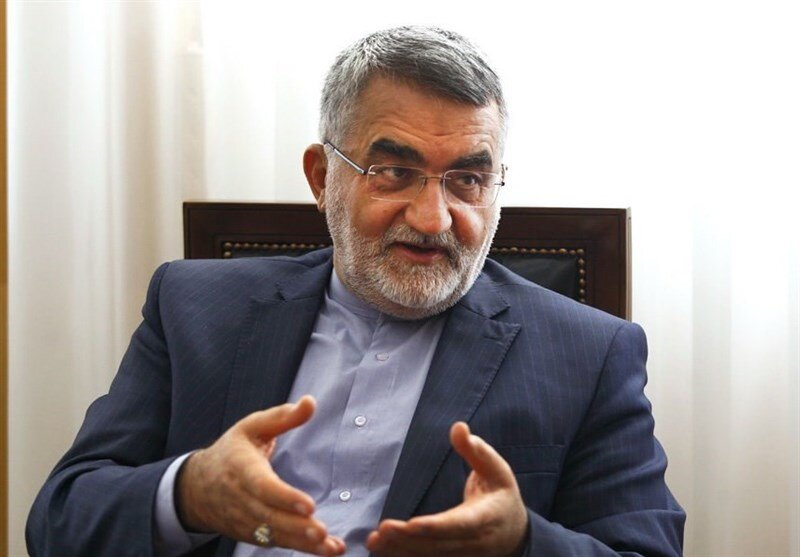Europe must fulfil JCPOA commitments: MP

TEHRAN - Alaeddin Boroujerdi, a veteran MP sitting on the Majlis National Security and Foreign Policy Committee, has said that Europe must fulfil its commitments under the 2015 nuclear deal, known as the Joint Comprehensive Plan of Action.
In an interview with the Tasnim news agency published on Wednesday, he said that Iran’s talks with the European countries should be on the nuclear deal and not any other issue.
According to the nuclear deal, Iran agreed to put limits on its nuclear activities in exchange for termination of economic and financial sanctions.
However, Donald Trump withdrew the U.S. from the UN-endorsed JCPOA in May 2018 and imposed the toughest ever sanctions against Iran in line with his administration’s “maximum pressure” policy against Tehran.
The remaining parties, particularly the European sides, have failed to honor their commitments since the U.S. reimposed the sanctions.
On May 8, exactly one year after the U.S. abandoned the multi-nation nuclear agreement and reimposed sanctions on Iran, Tehran said its “strategic patience” is over and announced a partial withdrawal from some aspects of the pact, saying that the country would no longer adhere to some of the limits on its nuclear activities. It also threatened to step up uranium enrichment if an agreement is not made within 60 days to protect it from the sanctions’ effects.
In follow-up to that deadline, on July 7 Iran announced that it has started enriching uranium to a higher purity than the 3.67% as the Europeans missed the 60-day deadline to devise a concrete mechanism to protect the country from the U.S. sanctions.
Iran says its actions are in conformity with the paragraph 36 of the JCPOA. Paragraph 36 provided a mechanism to resolve disputes and allows one side, under certain circumstances, to stop complying with the deal if the other side is out of compliance.
In a phone conversation on Friday with Emmanuel Bonne, diplomatic counselor to French President Emmanuel Macron, Chinese State Councilor and Foreign Minister Wang Yi said Beijing is willing to work with France to prevent further escalation of tensions on the Iran nuclear deal.
According to Xinhua, during the phone talks, Wang expressed China’s support for the mediation efforts France has made to resolve the stalemate on the nuclear agreement, saying that China has also made huge efforts in saving the JCPOA.
On Monday, Iran’s Foreign Ministry spokesman Abbas Mousavi said Tehran has not received any noteworthy or definite offer from France in the course of efforts to save the JCPOA.
On a report by Al-Monitor that French President Emmanuel Macron has proposed establishing a $15 billion credit line for trade with Iran, Mousavi said, “Following the Islamic Republic of Iran’s reactions to the inaction of the Europeans, a number of European countries launched a series of efforts and have been seeking to overcome the problems.”
He added, “The president of France… has begun measures in order to reduce tensions, and the Islamic Republic of Iran has announced that it welcomes such efforts and would not reject them,” Tasnim reported.
In a phone conversation with Macron in late July, Rouhani said the first step that Europe should take to save the JCPOA is to normalize oil and banking ties.
“Unfortunately, despite Iran’s full commitment to its obligations, only a small part of Iran’s economic interests has been met, and after the withdrawal of the United States, we have not only not seen any serious action by Europe in this respect, but also some European companies left Iran following United States’ unilateral sanctions,” Rouhani stated.
“Full compliance with the commitments by Iran while the other side does not meet its least commitments is not acceptable for the Iranian people,” Rouhani said.
He also said that Iran can reverse its decision to reduce nuclear commitments as soon as Europe meets the country’s economic interests.
So far, Europe has presented a mechanism, called INSTEX, for trade with Iran but it far short of Europe’s obligations based on the JCPOA. It only allows sale of medical equipment, medicine, and food, items which are not subject to sanctions.
NA/PA
Leave a Comment